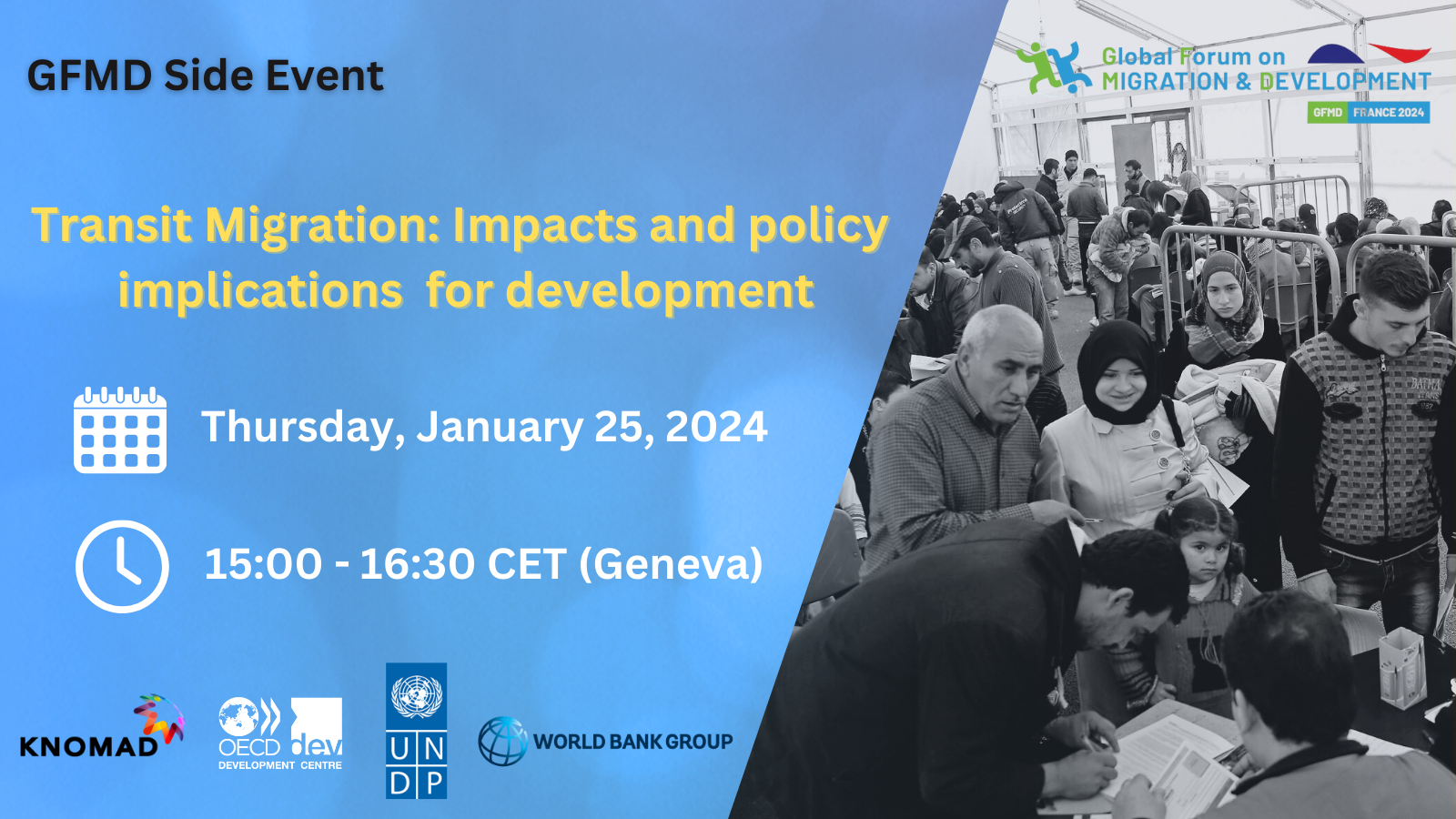
Event description:
As a part of the 14th GFMD Summit, held under the French presidency, a side event on the topic of "Transit Migration: impacts and policy implications for development," was organized on Thursday, January 25th, 2024, at 15:00 - 16:30 CET.
This side-event, hosted by the OECD Development Centre, UNDP, and KNOMAD/World Bank, aimed to shed light on the impact of transit migration on local economies and societies in low- and middle-income countries (LMICs).
Transit migration constitutes a fundamental part of migration journeys. Yet its impacts and the specific policies and responses towards it generally receive less attention compared to those that explicitly focus on countries of origin and destination. International commitments are quick to include it as an area of action, but no action is ever specifically about transit migration. It should be. If anything, focus on transit migration lies on the migrants themselves.
Transit migration tends to be risky and usually involves an irregular and unsafe route for part of the migrant’s journey. Transit routes typically feature trafficking, abuse, and sexual and gender-based violence. But transit migration also generates additional pressure and tension on local communities and municipalities. Transit migration also generates positive effects on the local economy, creating jobs and income opportunities.
For these reasons, it is unclear what the approach to the management of transit migration should look like. While many transit migrants do move on to other communities and countries, for local governments the continuous arrival of such migrants means that they are perpetually facing the challenge of transit migration. In this respect, even the concept of what determines or defines transit migration has been questioned.
A KNOMAD study ( by World Bank, UNDP, OECD) , investigated the impact of transit migration on the municipalities and communities affected by transit in collaboration with the Mixed Migration Centre (MMC). The study provides insights on the political, economic and social impacts of transit migration, as well as the pressures it implies for municipalities and communities.
The session drew on experiences from different countries as well as a on the policy implications of transit migration, based on qualitative interviews in four different transit countries from around the world. It will also looked at connecting the growing policy relevance of transit migration in LMICs to GFMD discussions, including those on multi-level governance.
To register and join the side event, please click here.
Speakers









